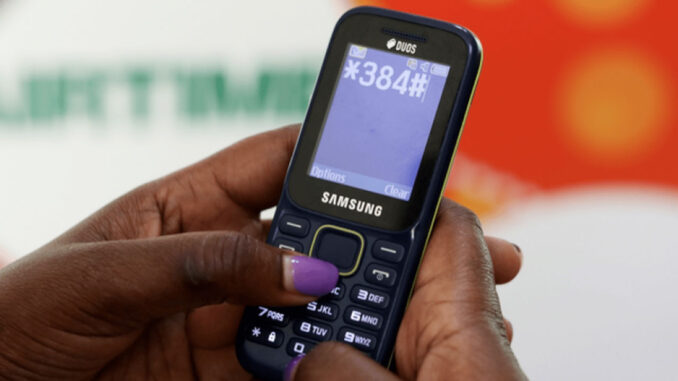
While there are ongoing conversations between the telecommunications operators and the banks at the regulatory level to find an amicable solution to the protracted crisis affecting the Unstructured Supplementary Service Data (USSD) platform, the service providers said that the debts owed them by defaulting banks have hit N120 billion.
As of the first quarter of 2023, the debts were put at N100 billion. But the Association of Licensed Telecoms Operators of Nigeria (ALTON) said the banks continue to hold back remittance even as the outstanding has increased by N20 billion.
ALTON Chairman, Gbenga Adebayo, told The Guardian at the weekend that the debt figure has climbed up to N120 billion. Adebayo, who confirmed discussion at the regulatory level, said: “Discussions are ongoing, we have regulatory intervention by both the Central Bank of Nigeria (CBN) and the Nigerian Communications Commission (NCC) at a very high level. Some of the banks are paying while others seem waiting until service is withdrawn in an attempt to test our resolve to get them to pay.
“If this CBN/NCC intervention fails, we will withdraw USSD service from debtor banks at some points. The outstanding now is in the region of N120 billion and no sector can survive the magnitude of rising debt.
“The banks have a moral obligation because these are services for which money has been deducted from their customers.” While the crisis is running for over five years now, the Ministry of Communications and Digital Economy, CBN and NCC had noted that from March 16, 2021, USSD services would be charged at a flat fee of N6.98k per transaction.
The agreement further said that the new USSD charges would be collected on behalf of mobile network operators (MNOs) directly from customers and that banks would not impose additional charges on customers for the use of the USSD channel.
Before the N6.98k per transaction regime, a typical USSD session, which lasted for 20 seconds had a price cap set at ₦4.98 for each session. A statement jointly signed by both NCC and CBN, when the crisis was at a tipping point on the N6.98k, read: “This replaces the current per session billing structure, ensuring a much cheaper average cost for customers to enhance financial inclusion. This approach is transparent and will ensure the amount remains the same, regardless of the number of sessions per transaction.”
MEANWHILE, while ePayment transactions hit N49.48 trillion in March, crises rocking the space, in terms of service quality, remain unabated and threaten to wipe the gains of the sector.
Checks by The Guardian showed that customers are still frustrated by services they get via USSD platforms and bank apps, which they claimed have been very slow and unresponsive, most times.
This challenge has forced many customers to throng the banking halls almost daily to make complaints. A customer with Zenith Bank, Kehinde Alesh, disclosed that last week, the bank’s app was unresponsive. “For almost two days, we could not do anything via the banking app. We even learnt the app crashed. So, many transactions hanging! The Central Bank of Nigeria needs to do something about this issue,” he stated.
A UBA customer, Ikechuckwu Ibeh, who banked with the Cele branch of the bank, lamented: “When I got to the bank, there was no network. I dropped my transactions with one of the trusted staff; she called me back around 3pm that they are still having network glitches and had to cancel the transaction.
“The banks need to invest more in infrastructure! The app is slow, USSD transactions are failing… you should have been at the bank to see the crowd. It is just annoying. The CBN should act fast before the sector collapses.”
Speaking recently on the bank’s IT infrastructure, the Country Director of BudgiT Foundation Nigeria, Gabriel Okeowo, said apart from the need for the availability of the redesigned notes, there was an urgent need for an overhaul of banks’ IT infrastructure for effective implementation of the cashless policy.
“If what is in circulation right now are the old Naira notes, it then means even the new Naira notes are not available. Also, as we speak, the queues have not completely gone, electronic transactions still decline and money is not reversed within 24 hours in most cases.
“Furthermore, the Internet infrastructure is not advanced enough for effective electronic transactions. If all of these are not put in place, I see a possibility of the extension of the deadline for the use of old naira notes beyond December 31,” he said.
END

Be the first to comment